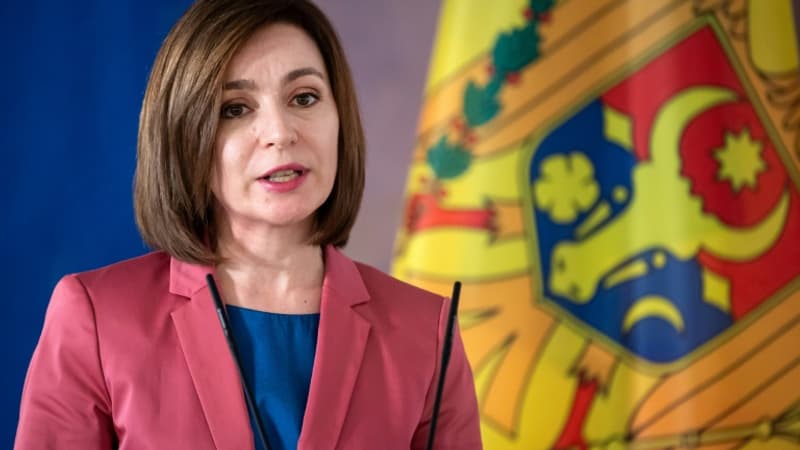The result may seem paradoxical. The pro-European Maia Sandu herself called this referendum to validate her strategy. Moldova’s accession negotiations began last June. The outgoing president obtained 38% of the votes in the first round. His victory was quite expected. The polls also gave the advantage to “yes.” Finally, after counting around 90% of the votes, 53% of the voters voted against the inclusion in the Constitution of the principle of future membership of the EU.
A real setback for the outgoing president, who denounces “an unprecedented attack on democracy.”
An “unprecedented” system of vote buying
In recent months, police have carried out 350 searches and arrested hundreds of people suspected of wanting to disrupt the elections on behalf of Moscow. Up to 300,000 Moldovans, if we count their relatives, would have been charged for putting anti-Sandu and anti-EU ballots into the ballot boxes, or around a quarter of the voters registered on the lists of this country of 2.6 million inhabitants. The head of the anti-corruption prosecutor’s office denounces the actions of an “organized criminal group that operates in a sophisticated manner, such as drug or arms traffickers.”
According to the WatchDog think tank, Moscow spent around $100 million in the run-up to the vote. At least €15 million was apparently transferred through Russian banks. Never seen before according to authorities. In charge, a man, Ilan Shor. He is an oligarch who took refuge in Moscow after being convicted of fraud. In 2014, he embezzled $1 billion from the coffers of three national banks, or 12% of Moldovan GDP at the time. On social media, Ilan Shor joked about Maia Sandu’s “defeat” and her “regrettable failure.”
A difficult second round ahead
Maia Sandu will face Alexandr Stoianoglo, from the Party of Socialists of the Republic of Moldova, a Eurosceptic and Russophile party, in the second round. This former prosecutor obtained 29% of the votes. Today it can count on the vote reserves of many small candidates supported directly or indirectly by the Kremlin.
Moldova has two pro-Russian regions on its territory: Transnistria in the east and Gagauzia in the south. Maia Sandu, a former World Bank economist, completely turned her back on Moscow at the start of the Ukraine war. Even if she were to win, she would emerge from this election considerably weakened. Despite not winning the referendum, Moldova retains its status as an official candidate, but the green path to accession seems very complicated in the face of seemingly unlimited Russian interference.
Source: BFM TV


